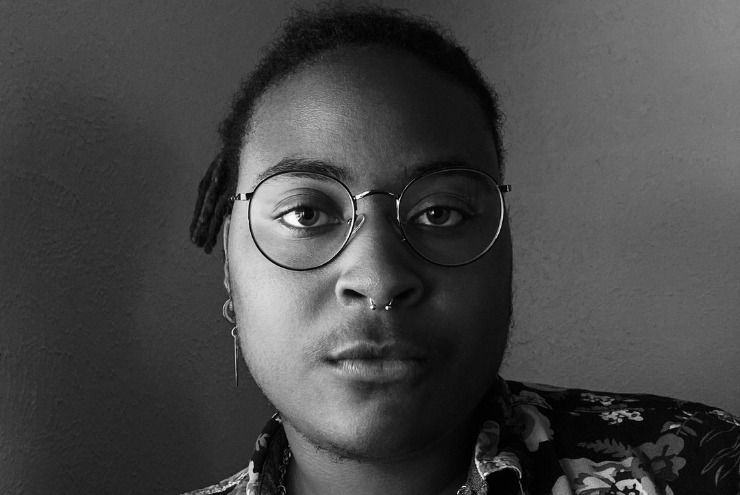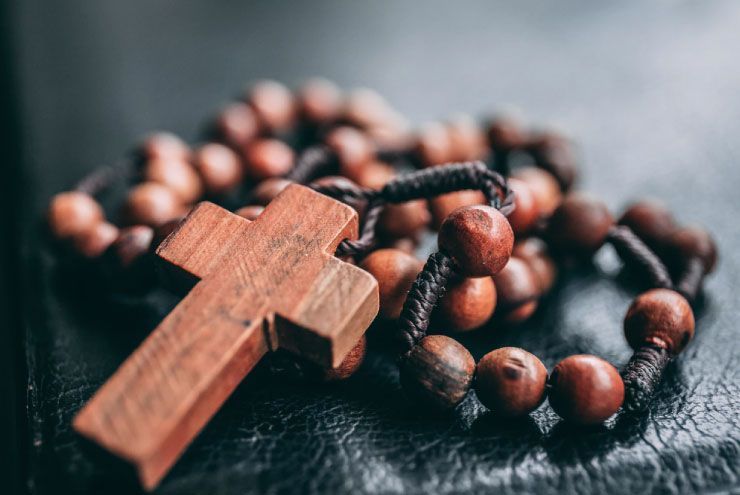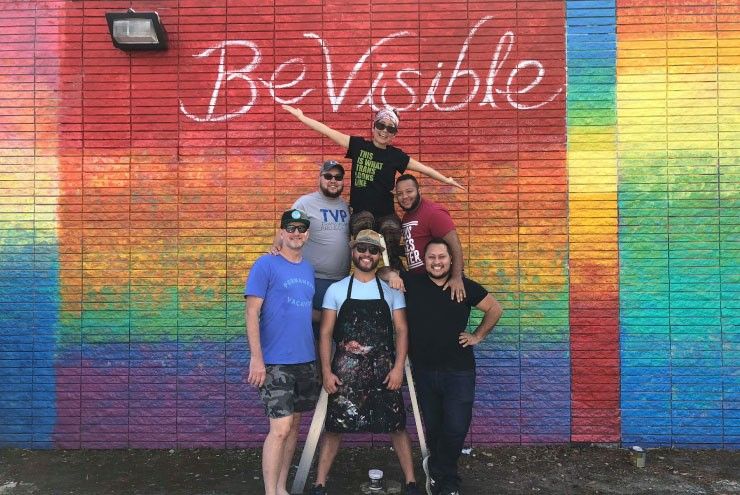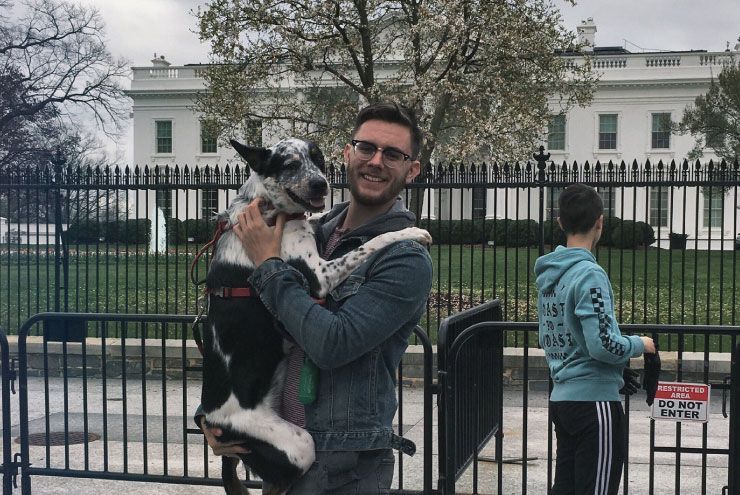By KB Brookins
Before I knew what “trans” was, I knew not to be it. As an overtly masculine Black girl in Texas, the state was already out to get me for my skin. Even worse though, my own Black community was out to get me for being different.
“Is she gay?” my childhood pastor asked my father just days after the church’s first lady decided to mandate that “all ladies wear skirts.”
Before I knew that I was different, many systems told me to change.
On October 25, 2021, the state of Texas passed House Bill 25, a bill that bans transgender youth from participating in sports that coincide with their gender. After ten months and three gruesome special sessions—where the governor put the actual needs of Texans aside to advance a hateful political agenda—one of the many embarrassing and unnecessary bills he backed actually succeeded. What a hateful state of politicians we live in, and what a hateful culture they have fed.
This isn’t Texas’ first transphobic rodeo. In 2016, the state was one among many attempting to advance bills that would ban transgender people from using the restroom that aligned with their gender. Many of the anti-trans sentiments used to advance HB25—“save Texas girls” and the like—are not new and have been in conservative circulation for a while. Luckily, this bill died (and this tired, unfounded argument of trans people being a threat to women should’ve died along with it).
I’ve spent my entire life in Texas, and I’ve encountered transphobia nearly every day. I’ve lived in both North Texas and the self-proclaimed “blue bubble” of Austin—yet, this transphobia is cooked into the fabric of this state’s people, customs, and traditions. This can look like many things—any time that I see a doctor, get gawked at by a passersby in my neighborhood, give someone my ID, or go to a public restroom. Even applying to school in this state has barriers—the admission question “Are you a woman or a man?” is a barrier that leads to exclusion and demise.
I am deadnamed as default and erased or mistreated on principle. Even within the broader LGBTQIA+ community, my trans siblings and I deal with discrimination from our cis queer counterparts. Within the Black community, I am at best an afterthought, and at worst, dead. Even within other movements—such as with the new anti-abortion laws passed in Texas—we are erased and told that our calls for more inclusive language don’t matter.
Why Texas? Why don’t you want me here?
As I’ve moved through transitioning, it’s only become more clear that Texas has a big issue. What hurts me the most is that anti-trans legislation is unnecessary—especially when you consider our state’s COVID-19 rates, homelessness, and infrastructure failure that caused a deadly winter storm in February 2021.
But the plight of trans people doesn’t end there. In October 2021, a Texas lawmaker tried to make the outrageous claim that marriage equality was actually still illegal in Texas. Though trans people aren’t as explicitly named, it would undoubtedly affect the large overlap of trans folks who are in same-gender-loving relationships. In 2021, Texas Representative Matt Krause launched an investigation in which he asked schools statewide to tell him whether they currently hold any of around 850 books on a list he compiled, explaining that he is targeting materials that “might make students feel discomfort, guilt, anguish, or any other form of psychological distress because of their race or sex.” As you can imagine, the list of topics being investigated has to do with queerness, transitioning, and the truth about what America has done to any person that isn’t white. Removing diverse literature when people are still going through classes with no queer, trans, or BIPOC authors would only promote what we already have: intolerance and ignorance toward marginalized groups. According to the Transgender Law Center, in 2019, Texas scored in the top ten lowest states on their LGBTQ+ Equality Map. LGBTQ+ policy organization Equality Texas said it best: “This is just the beginning of a long-term plan to roll back the hard-won progress made since Stonewall.” I carry the shame of what hateful policymakers have done to the culture of this state everywhere I go; when will I be able to let this baggage go?
When will trans people be seen as Texans deserving of comfort, safety, and promise like everyone else? When will we be cleared of the longstanding lies that we are enemies of women and girls? At what point will a trans Texan’s life not be fully controlled by politicians working against them? I would love to live in a world where being trans is a non-issue, and where I can go to the doctor, and pee, and play sports just like every cis person does. Here are some actions I suggest:
Give to local grassroots organizations working to make the lives of trans Texans livable.
Some of my favorites are Equality Texas, Transgender Education Network of Texas, Black Trans Leadership of Austin, and Black Trans Advocacy Coalition.
Interrupt transphobia when you hear/see it.
And I’m not just talking about slurs. Addressing a group of people whose gender you don’t know as “ladies and gentlemen” is transphobic. Using “he or she” for a hypothetical group of people is transphobic. Not using inclusive language when talking about abortion is transphobic. Only having men’s and women’s restrooms in public spaces is transphobic. Not using someone’s correct name and pronouns is transphobic. Having “LGBTQ+” spaces that only center cis people is transphobic. Educate yourself. Advocate against transphobia.
Show up.
That means come to protests, teach-ins, and phone banks when they happen. Call your Texas representatives and advocate for policies that promote the betterment of trans lives. If you don’t know what those policies are, consider connecting with grassroots organizations first. If you can’t show up in these “direct action” ways, again, connect with grassroots organizations and see what they need. They need your support, and they’ve gone without it for too long.
There will never be a Texas without trans people, and I’m 90 percent sure there will never be a Texas without me. We can make this state livable and beautiful for trans people. Though we are a long way from it, it is not out of reach. I want the next generation of trans kids to be celebrated, and they will be when we are honest about our problem and allies work with us to solve it.
I love my transness and trans Texans. Hopefully, one day, Texas will too.
KB is a Black transmasculine poet, essayist, and cultural worker. They are the author of How To Identify Yourself with a Wound (Kallisto Gaia Press, 2022) and Freedom House (Deep Vellum Publishing, 2023). Follow them online at @earthtokb.







